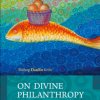ABOLISHMENT OF THE PATRIARCHATE OF PEC
After the “Great Migration” of Serbs of 1690 it is possible to follow the development of the Serbian Church and national history not only within borders of the Ottoman Empire, but also in wide regions of the Austrian Empire. Popular living conditions in regions under Turkish rule, and conditions under which the Church functioned there, were even more difficult now. Population constantly decreased in numbers. Two patriarchs were compelled to flee into Austria and Turks lost all confidence in Serbian clerics. Greeks immediately exploited this adverse state of affairs. After Patriarch Arsenije IV Sakabenta migrated to Austria, the Church in Constantinople asserted pressure on the Porte to install mainly Greeks, such as Joanikije Karadza (1739-1746), as Patriarch of Pec. In the short period of time between 1752 and 1765 eight patriarchs sat on the throne of Pec, five of whom were Greek. Patriarchate debts accumulated in Constantinople and no one was willing to pay them back. Last Serbian national to be elected patriarch before abolishment of the Patriarchate of Pec was Vasilije Brkic (1763-1765, Basil Brkych). He was banished to Cyprus as an enemy of Turkish State. He was succeeded by a Greek, Kalinik II (1765-1766), who performed an unprecedented deed — he resigned his title of Patriarch of Pec and, with other five bishops, sent a petition to the Oecumenical Patriarch in Constantinople asking for the abolishment of the Patriarchate of Pec. Accumulated Patriarchate debts were quoted as the main reason for this motion. Accordingly, Patriarch of Constantinople convinced the Sultan to abolish the Patriarchate of Pec (September 11th 1766), and place its dioceses under the spiritual jurisdiction of the Church in Constantinople: “From now on even the very name of Patriarchate of Pec is to be considered abolished, and its reestablishment forbidden under any circumstances”. Same fate was to be suffered by the Archbishopric of Ohrid only a year later. This state of affairs lasted all the way through until 1920 when the dignity of a Patriarchate was restored to the Serbian Church.
Abolishment of the Patriarchate announced grave days ahead for the Serbian Church. All Serbian bishops were removed and Greek nationals brought to take their place. These newcomers were called Phanariots (after Phanar — that part of Constantinople, i.e. Istanbul, where the Oecumenical Patriarch resided together with most of the well-to-do Greek nationals in the city) and were remembered for their lack of consideration for the welfare of Serbs under their jurisdiction. Most of them did not even speak Serbian.




